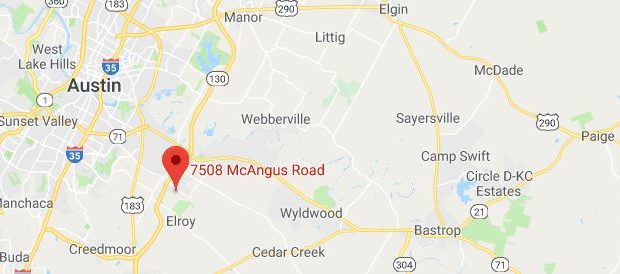Newsletter Signup
The Austin Monitor thanks its sponsors. Become one.
Most Popular Stories
- Parks Board recommends vendor for Zilker Café, while voicing concerns about lack of local presence
- City leaders evaluate surprising ideas for water conservation
- Office slowdown sparks new downtown housing ambitions
- Audit: Economic official granted arts, music funding against city code
- Downtown Historic Resource Survey eyes seven new districts eligible for designation
-
Discover News By District
Popular Whispers
Sorry. No data so far.

Planning Commission sees its first development trying to ‘unlock affordability’
Tuesday, June 25, 2019 by Jessi Devenyns
Last May, City Council unanimously passed the Affordability Unlocked bonus program, a density program that loosens site restrictions and promotes the construction of more units in affordable and mixed-income housing developments.
This month, the first developer came before the Planning Commission to request a zoning change to better allow them to take advantage of the ordinance’s dense development provisions.
The property at 7508 McAngus Road is currently a 12-acre vacant lot that is zoned single family (SF-2). Alice Glasco, who was representing the property owner, SR Development, Inc., came to request that the Planning Commission recommend a change in zoning to multifamily (MF-4).
“I just wanted you to give us the opportunity to tap into the provision as much as possible,” she said.
To participate in Affordability Unlocked, developers must provide at least 50 percent of all units at income-restricted levels – defined as 60 percent median family income or below for rental units, and 80 percent MFI for ownership developments. Developers offering deeper affordability are granted additional density bonuses including height increases, reduced setbacks and waived parking requirements.
At 7508 McAngus Road, Glasco said 100 percent of the 200- to 250-unit multifamily development would be affordable at 60 percent MFI.
Parkland and single-family developments surround the parcel of land in a lightly developed area. As such, city staff recommended that the zoning on the site be changed to MF-3, which would reduce the allowable height of the buildings and therefore the number of units it could accommodate. Wendy Rhoades with the Planning and Zoning Department explained that there are too few arterial roadways to accommodate the influx in traffic an MF-4 development could bring.
While the commissioners were amenable to the idea of a dense affordable housing development, Commissioner Karen McGraw expressed uncertainty that the location was the ideal place to encourage it. She said that the surrounding single-family neighbors purchased their homes with the understanding that the parcel across the way was zoned single-family as well. If the zoning was changed to allow a 60-foot-high structure, “These people will be in terrible shock,” she said.
Commissioner James Schissler, however, chose to look at the site through the lens of the city’s Strategic Housing Blueprint, which sets a goal of creating 60,000 affordable units by 2027. “We want to maximize density and then all of the sudden it’s like well, this is outside the city limits and all of the sudden we don’t want to max density. I don’t think there’s a good justification for not allowing MF-4,” he said.
Due to the newness of the Affordability Unlocked program, Chair Fayez Kazi wondered if MF-3 zoning with the program’s allowances would allow the developer to achieve the same density of development as if they were granted MF-4 zoning.
MF-4 zoning allows for 60 feet of height, which can be expanded up to 75 feet under the density program, whereas MF-3 zoning allows for 40 feet of height, which can be expanded up to 50 feet to allow for additional units on-site.
Even with the Affordability Unlocked program overlaid onto MF-3 zoning, the development would still have to abide by the zoning category’s reduced impervious cover limits from MF-4 and greater front yard setback distances. Impervious cover is not affected by Affordability Unlocked and front setbacks are reduced by 50 percent in accordance with the original zoning’s requirements.
“I’m getting a little taste of what Zoning and Platting must go through all the time with these far-flung sites,” said Commissioner Conor Kenny. “We agonize over the viability of the transportation (within the city) and then there’s this far-flung stuff going in and there doesn’t seem like there’s any thought going into the planning.”
With an eye to future planning in the area, the Planning Commission voted unanimously to recommend MF-3 zoning for the site. Commissioners James Shieh and Greg Anderson were absent.
Map courtesy of Google Maps.
The Austin Monitor’s work is made possible by donations from the community. Though our reporting covers donors from time to time, we are careful to keep business and editorial efforts separate while maintaining transparency. A complete list of donors is available here, and our code of ethics is explained here.
You're a community leader
And we’re honored you look to us for serious, in-depth news. You know a strong community needs local and dedicated watchdog reporting. We’re here for you and that won’t change. Now will you take the powerful next step and support our nonprofit news organization?


